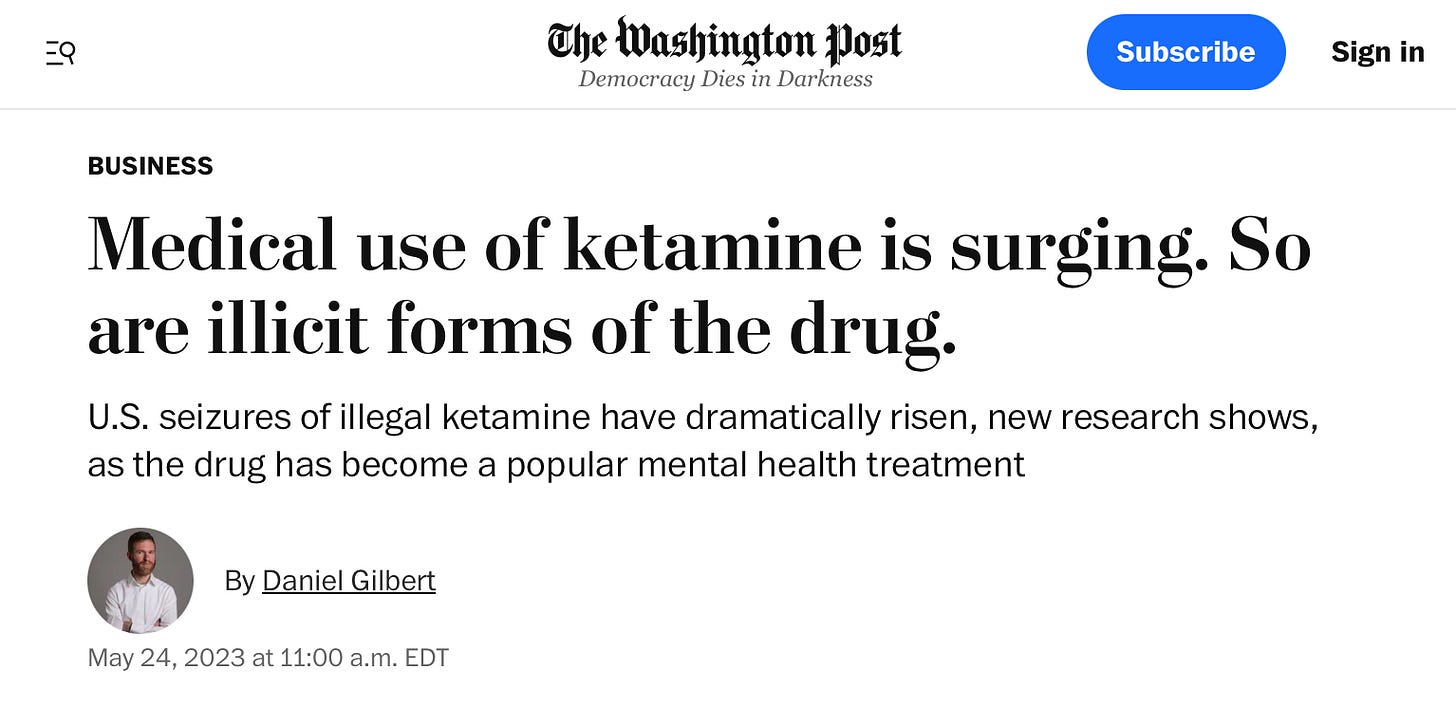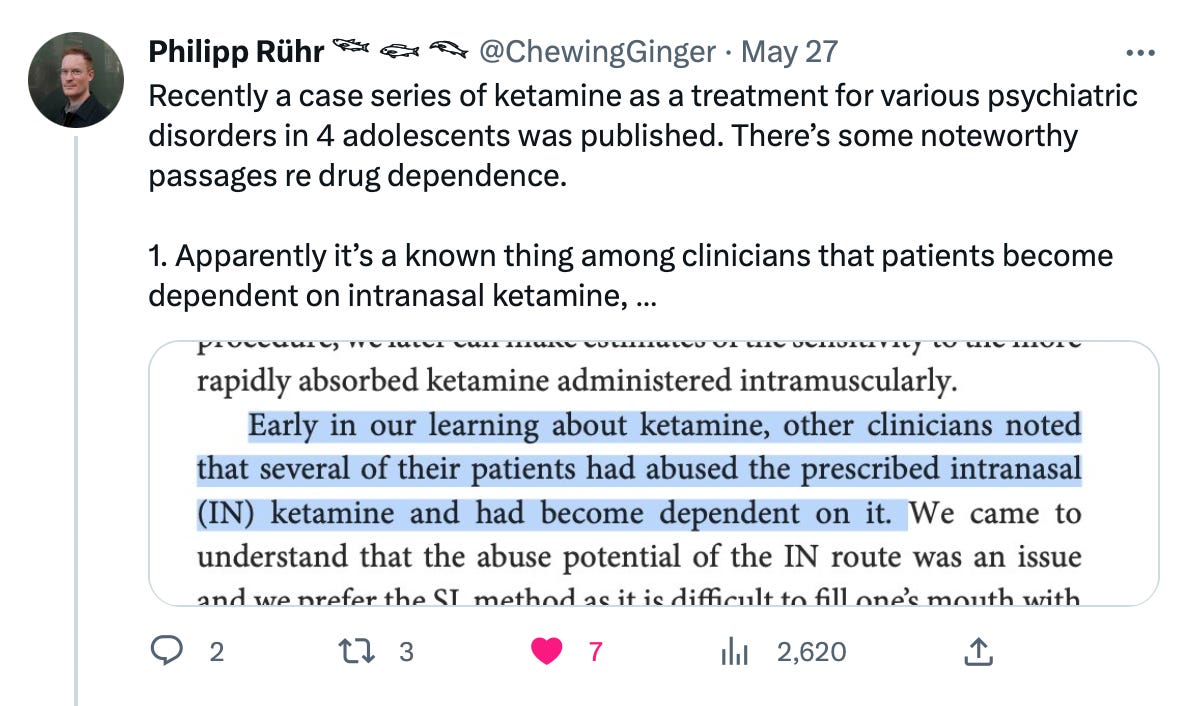Drugism Dispatch #2
New fentanyl sanctions will accomplish nothing + the HALT Fentanyl Act is a huge step backward
The Drugism Dispatch continues. Let’s get to it.
1. New sanctions won’t stop the fentanyl pipeline
News broke today of a fresh round of sanctions against a number of individuals and businesses who are accused of participating in the fentanyl pipeline.
But here’s the thing: we’ve done this before (multiple times), and it didn’t work. I see no reason to believe that these fresh sanctions will result in any substantial change to the present situation. History has made all to clear that we cannot ban and sanction our way out of this mess. Cool-headed diplomacy—not hot-tempered finger-pointing—is what’s needed if we expect to make any real progress in addressing the fentanyl pipeline and the hundreds of thousands of overdose deaths it has contributed to.
But diplomacy is so not in style right now, at least as far as the US is concerned. Although I’ve paid fairly close attention to the political situation around fentanyl as well as to the state of US-China relations, I somehow missed this rather important detail that developed after Nancy Pelosi’s visit to Taiwan last August: the Chinese government suspended cooperation with the US on an array of issues, including counternarcotics strategy.
Many thanks to El Parece for dropping this extremely important piece of information in a tweet about the fentanyl pipeline. And yes, I did verify this—first with media sources, and then with this official statement on a Chinese government website:
The fact that China and the US were even cooperating at all prior to that point may come as a surprise. But the two nations had actually been working—quite slowly—toward something of a diplomatic resolution to the matter before Pelosi’s visit. In a future post, I’ll explain why a diplomatic resolution (albeit, one that entails legalization rather than more prohibition) is the best option to address the fentanyl pipeline.
2. The HALT Fentanyl Act would be a huge step backward
The sanctions announcement comes on the heels of some other big fentanyl news: last week, the House of Representatives passed a bill that would make fentanyl and its analogues Schedule 1 substances.
The bill, dubbed the Halt All Legal Trafficking of Fentanyl Act (ie the HALT Fentanyl Act), was introduced by Morgan Griffith (R-VA) and Bob Latta (R-OH). “The White House threw its support behind the bill,” reported Kathryn Watson at CBS, “noting that its provisions were critical components of the Biden-Harris administration's 2021 recommendations to Congress.” It now awaits a vote by the Senate. Judging by the numbers on the House vote and the Biden administration’s support, it seems likely to pass.
Others have already done a great job explaining why this is a bad move that will almost certainly only exacerbate the situation. For starters: drug suppliers have already moved on to other substances like xylazine, and it is precisely through this drug-law-hoop-jumping that fentanyl became so popular to begin with. It is stunningly obvious that prohibition is costing us lives—hundreds by the day, at that. But there is a lot of money to be made from the current model.
Check out the pieces below for more complete explanations of why the HALT Fentanyl Act is problematic:
To learn more about why a punitive approach doesn’t work and what we should do instead, check out these excerpts from Drugism:
3. Minnesota legalizes drug paraphernalia
In spite of all that, I still have hope. More and more people are realizing that we need a completely new approach to drugs. Take, for example, this new law in Minnesota:
4. Vancouver considers allowing smoking at SCSs
Or check out this pilot program being considered in Canada:
5. Some notes on ketamine…
Of course, we must remain wary of the pitfalls of legal drug markets, of which there is no shortage. While legalization is sorely needed, new drug markets will themselves inevitably be flawed.
In Drugism, I explore various issues with ketamine, a drug that is now more popular than ever. And in my recent interview on Schizotopia, I explained that although the use of ketamine sourced from legal channels has increased in recent years, so too has the use of ketamine sourced from illegal channels, namely Myanmar and Pakistan. A few days ago, the following headline appeared in The Washington Post:
The article neglects to mention where this surge of illicit ketamine is coming from, but you can read all about that here:
Lastly, I’d like to share this Twitter thread by Philipp Rühr about cases of habitual/compulsive use of ketamine among medical patients:
In drawing attention to this thread I do not intend to make a judgment for or against ketamine, but rather to share information about it, in keeping with my both/and approach to it and all drugs. I think it’s worth considering as we navigate the entropy that is drug use and collectively explore how we might go about it more safely.
Thanks for reading.















